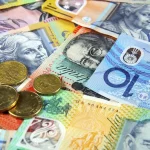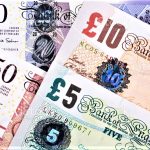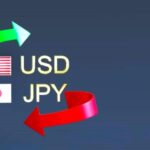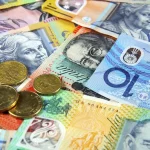Japanese yen falls as traders examine the Bank of Japan’s policy outlook.
The Japanese yen (JPY) fell against the US dollar (USD) on Wednesday as investors assessed the Bank of Japan’s (BoJ) monetary policy stance. On Tuesday, BoJ Governor Kazuo Ueda stated that the central bank has time to assess market and economic conditions before making any policy changes, implying that there is no need to hike interest rates further.
BoJ Ueda stated that any policy modifications would be evaluate based on market and economic conditions, indicating that there is no need for rate hikes.
Kazuo Ueda, the Governor of the Bank of Japan It should be highlight that Japan’s real interest rate remains extremely low, which contributes to economic growth and price increases. Furthermore, Finance Minister Shunichi Suzuki expressed confidence that the Bank of Japan will implement appropriate monetary policy actions while maintaining close coordination with the government.
Traders are now anticipating the release of the BoJ Monetary Policy Meeting Minutes on Thursday, followed by Tokyo’s inflation data on Friday, to provide additional insight into the economic outlook and future monetary policy adjustments.
US dollar is under pressure due to rising dovish attitude regarding the Fed’s policy outlook.
The USDJPY pair fell as the US Dollar suffered after worse consumer confidence data from the United States (US) reported on Tuesday, adding to dovish views for the Federal Reserve’s (Fed) upcoming monetary policy decision.
Daily Digest Market Movers: Japanese yen remained low amid uncertainties regarding the BoJ policy outlook.
Federal Reserve Governor Michelle Bowman noted on Tuesday that key inflation indicators remain “uncomfortably above” the 2% objective, advising prudence as the Fed pushes forward with interest rate decreases. Despite this, she favored a more traditional approach, asking for a quarter percentage point drop.
The US Consumer Confidence Index dropped to 98.7 in September from a revised 105.6 in August. This result represents the largest drop since August 2021.
The Jibun Bank Japan Composite Purchasing Managers Index (PMI) fell to 52.5 in September from a final reading of 52.9 in August, the highest in 15 months. Despite the dip, this is the seventh consecutive month of gain. This year’s private sector activity driven mostly by the service sector. The Services PMI rose to 53.9 in September, from 53.7 in the previous month.
The S&P Global US Composite PMI expanded at a slower rate in September, reaching 54.4 from 54.6 in August. The Manufacturing PMI unexpectedly fell to 47.0, indicating contraction, while the Services PMI rose more than predicted to 55.4.
Minneapolis Fed President Neel Kashkari stated on Monday that he believes there should and will be significant interest rate reduction in 2024.
Minneapolis Fed President Neel Kashkari stated on Monday that he believes there should and will be significant interest rate reduction in 2024. However, Kashkari anticipates future cuts to be smaller than those made at the September meeting, according to Reuters.
Chicago Fed President Austan Goolsbee stated, “Many more rate decreases likely needed over the next year,
Rates need to be drastically reduced.” Furthermore, Atlanta Fed President Raphael Bostic stated on Monday that the US economy is near to normal inflation and unemployment rates, and that the central bank’s monetary policy must “normalize” as well, according to Reuters.
In an interview with NHK on Monday, Japan’s new “top currency diplomat,” Atsushi Mimura, claim that the previous Yen carry transactions had most certainly been unwound. Mimura warned that if such trades resume, it might lead to more market instability. “We are always monitoring the markets to ensure that does not happen,” she said.









